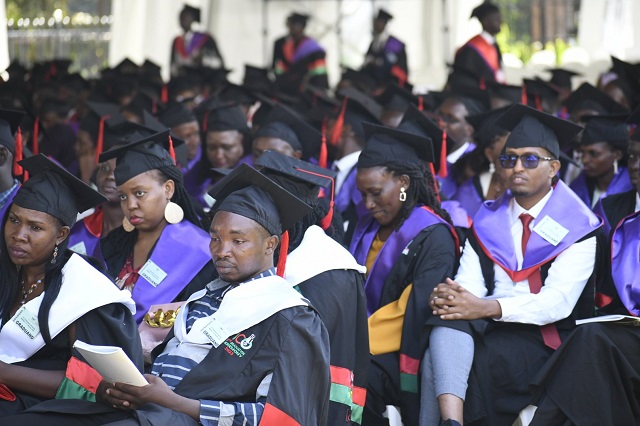
COMMENT | Saddam Ngambirwoha | The COVID-19 pandemic, declared by the World Health Organization (WHO) on March 11, 2020, spread rapidly across the globe, reaching Uganda later in March 2020. In response, the Ugandan government implemented strict measures to curb the virus, including banning passenger flights, restricting land and water entries, and suspending public transport. By March 25, 2020, public markets were closed, and movement was heavily restricted.
These measures, while necessary to control the virus, had far-reaching consequences. According to UNICEF, nearly 90% of students worldwide faced disruptions due to school closures. In Uganda, university students were particularly affected, with many experiencing increased anxiety, stress, and depression as they grappled with the challenges of remote learning and social isolation.
Research done at one of the universities in Uganda highlights the severe psychological impact of the pandemic on university students. Prolonged lockdowns, financial instability, and the challenges of online learning exacerbated mental health issues, leaving many students feeling isolated, overwhelmed, and uncertain about their future. The study found that over half of the students surveyed experienced significant psychological distress, with female students and those from low-income backgrounds being disproportionately affected.
One student shared, “Staying home for a long time during the lockdown made me feel hopeless. I struggled to focus on my studies and felt cut off from my friends.” This sentiment echoes the experiences of many students who faced not only academic disruptions but also the emotional strain of being isolated from their support systems.
Over 50% of students reported experiencing anxiety, depression, and stress, with prolonged lockdowns leaving many trapped and disconnected from their peers and support networks. This isolation exacerbated their mental health struggles, as they grappled with the challenges of remote learning and the absence of familiar social structures.
Financial insecurity emerged as a major risk factor for psychological distress. Students from low-income backgrounds faced significant hardships, including food and housing insecurity, limited access to study spaces, and inadequate tools for online learning. These economic challenges added to their stress, making it even more difficult to cope with the demands of academic life.
The study also highlighted notable gender differences. Female students perceived a higher degree of risk related to COVID-19 and were more likely to adhere to preventive measures. However, they also reported higher levels of psychological distress compared to their male counterparts, underscoring the unique pressures faced by women during the pandemic.
For many students, the fear of hunger, poverty, and police brutality during lockdowns outweighed their fear of the virus itself. One student poignantly remarked, “I fear hunger, poverty, and death by LDUs (Local Defence Units) more than COVID-19.” This sentiment reflects the harsh realities faced by students who were more concerned about survival than the virus.
Students who maintained strong relationships with family and friends reported higher levels of resilience and happiness. However, many struggled due to a lack of access to mental health services and financial hardships, highlighting the need for comprehensive support systems to help students navigate these difficult times
Call to Action: Addressing the Mental Health Crisis
The study underscores the urgent need for comprehensive support programs to help students recover and thrive. Universities should prioritize mental health services, including counseling and peer support programs, to provide students with the emotional and psychological support they need.
Governments and institutions must also step in to offer financial assistance, such as student loans, to alleviate the economic burdens that exacerbate stress and anxiety.
Families and communities play a crucial role as well; by working together to create safe spaces, they can help students share their experiences and seek help in a supportive environment.
Additionally, policymakers should develop targeted interventions to address the unique challenges faced by students during crises, ensuring that mental health remains a priority in both education and public health agendas. By taking these steps, we can build a stronger, more resilient support system for students navigating the long-term effects of the pandemic.
****
 NGAMBIRWOHA SADDAM is a COUNSELLING PSYCHOLOGIST AND A MEMBER OF UGANDA COUNSELLING ASSOCIATION
NGAMBIRWOHA SADDAM is a COUNSELLING PSYCHOLOGIST AND A MEMBER OF UGANDA COUNSELLING ASSOCIATION
 The Independent Uganda: You get the Truth we Pay the Price
The Independent Uganda: You get the Truth we Pay the Price



